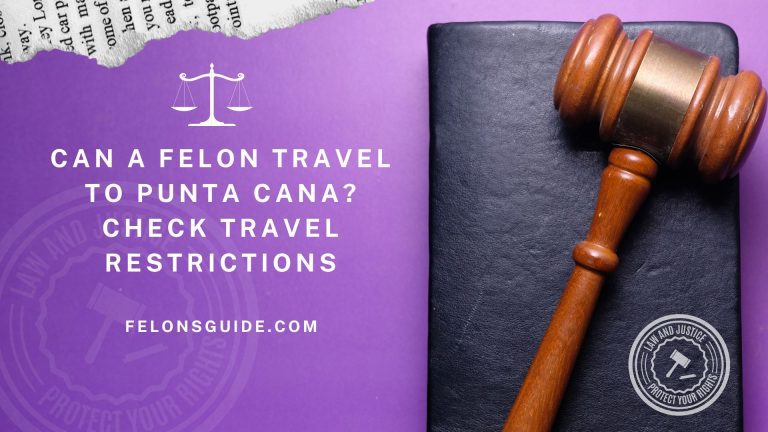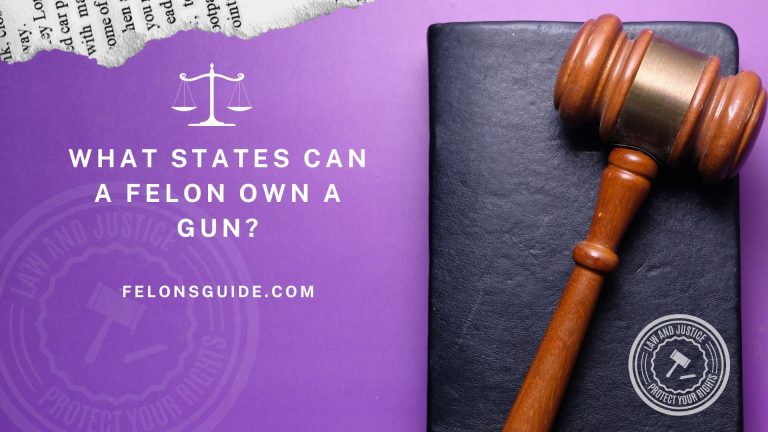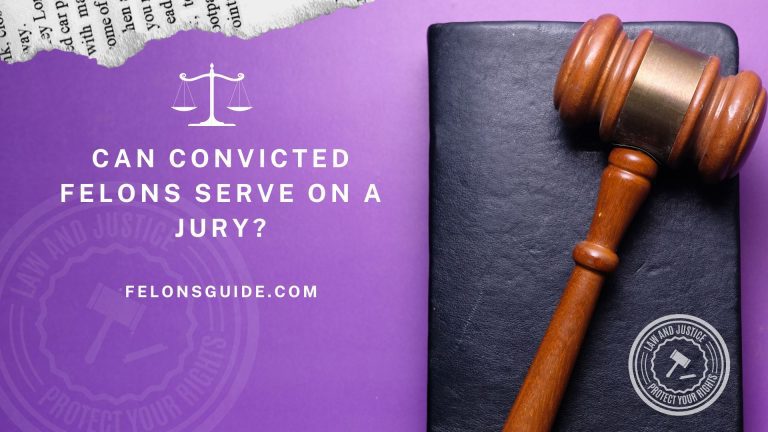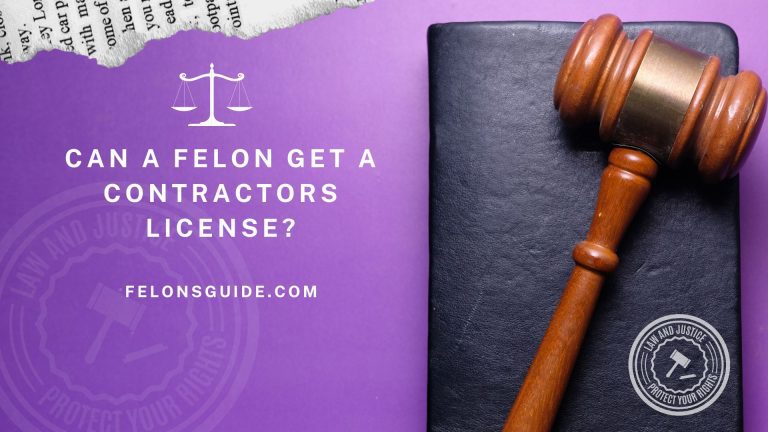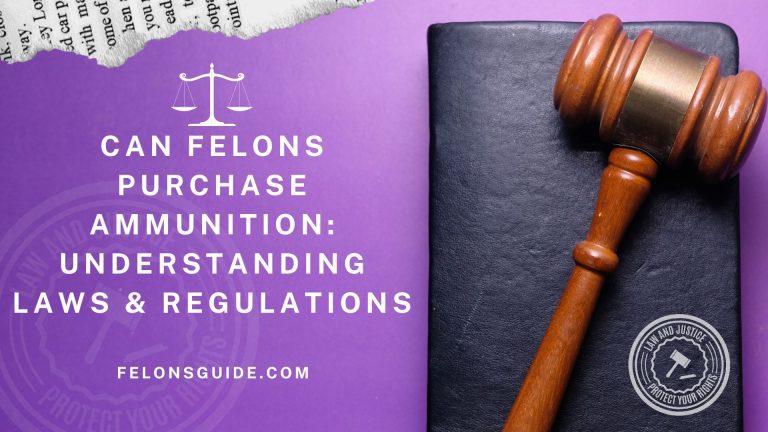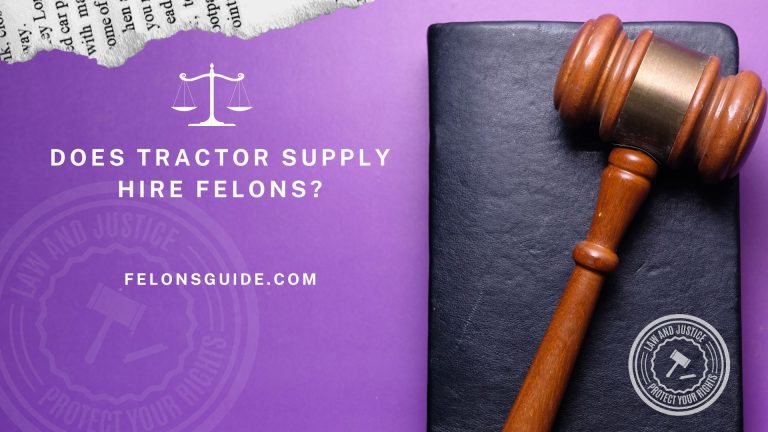Can a Felon Get a Liquor License? Exploring the Legalities and Requirements
Imagine being a felon who has served their time and is looking for a fresh start. Maybe you’re interested in the food and beverage industry, and you’ve heard about the potential benefits of obtaining a liquor license. But as a felon, you might be wondering if it’s even possible to obtain such a license. Can you really overcome your criminal record and pursue a career in the industry?
In this article, we will explore the legalities and requirements of obtaining a liquor license as a felon, as well as the steps and challenges involved in the application process. We will also share inspiring stories of felons who have successfully obtained a liquor license and the benefits that come with it. If you’re a felon with dreams of working in the food and beverage industry, this article is for you. So let’s dive in and explore the possibilities together.
Can a Felon Get a Liquor License
The question of whether a felon can get a liquor license is not a simple yes or no answer. While it is possible for felons to obtain a liquor license, there are certain legal restrictions and requirements that they must meet in order to do so.
First and foremost, it’s important to understand that each state has its own laws and regulations regarding liquor licenses and felony convictions. Some states may prohibit felons from obtaining a liquor license altogether, while others may have specific requirements or limitations in place.
In addition to state laws, there are also federal laws that come into play when it comes to liquor licenses and felony convictions. The Alcohol and Tobacco Tax and Trade Bureau (TTB) is the federal agency responsible for regulating alcohol sales and distribution. They require anyone involved in the sale or distribution of alcohol to obtain a permit or license, and they also conduct background checks to ensure that individuals meet certain criteria, including a clean criminal history.
So, can a felon get a liquor license? The answer is that it depends on the specific circumstances and requirements in their state and with the TTB. In general, felons will need to disclose their criminal history and provide evidence of rehabilitation and good conduct. They may also be required to complete additional training or education programs, and the application process may be more rigorous for felons compared to non-felons.
It’s also important to note that felons seeking a liquor license may face stigma and discrimination in the industry, which can make it more difficult to secure a job or business opportunity. However, there are programs and resources available to support felons in the industry, and many felons have successfully obtained liquor licenses and pursued careers in the food and beverage industry.
The Legalities of Obtaining a Liquor License for Felons
For felons interested in obtaining a liquor license, it’s important to understand the legalities involved in the process. While there is no one-size-fits-all answer, as each state and the TTB have their own requirements, there are some general legalities to keep in mind.
Firstly, it’s important to disclose any past criminal history on the application. Concealing a felony conviction could lead to automatic disqualification and potentially even criminal charges. Therefore, it’s essential to be honest and upfront about your past.
In addition to disclosure, some states require felons to wait a certain amount of time before they can apply for a liquor license. This waiting period can vary depending on the state and the severity of the felony conviction. It’s essential to research your state’s specific requirements and waiting period before beginning the application process.
Moreover, it’s essential to demonstrate rehabilitation and good conduct. This can include providing evidence of employment, community involvement, and participation in rehabilitation programs. Many states may also require letters of recommendation from community members or employers.
Another aspect to consider is the impact of parole or probation on the application process. Felons who are still on parole or probation may face additional requirements and limitations when applying for a liquor license. For example, they may be required to obtain permission from their parole or probation officer before starting a business or accepting a job in the industry.
Additionally, it’s crucial to be aware of the potential consequences of violating liquor license laws as a felon. Violations can lead to revocation of the license, fines, and even criminal charges.
Also Read: Can Felons Travel to Dubai? Everything You Need to Know
Steps for Felons to Obtain a Liquor License
Obtaining a liquor license as a felon can be a challenging process, but it’s not impossible. Here are some steps to help felons navigate the process and increase their chances of obtaining a liquor license:
- Research state requirements: The first step is to research the requirements in your state. Each state has its own laws and regulations regarding liquor licenses, and some may have stricter requirements for felons. Researching these requirements will help you understand what you need to do to obtain a liquor license.
- Disclose your criminal history: Be honest about your criminal history on your application. Concealing your past could lead to automatic disqualification and potentially even criminal charges. It’s essential to be upfront about your past and demonstrate that you have taken responsibility for your actions.
- Demonstrate rehabilitation and good conduct: Felons should demonstrate rehabilitation and good conduct to increase their chances of obtaining a liquor license. This can include providing evidence of employment, community involvement, and participation in rehabilitation programs. Many states may also require letters of recommendation from community members or employers.
- Wait for the required waiting period: Many states have a waiting period before felons can apply for a liquor license. The waiting period can vary depending on the state and the severity of the felony conviction. It’s essential to research your state’s specific requirements and waiting period before beginning the application process.
- Obtain a surety bond: Some states may require felons to obtain a surety bond as part of the application process. A surety bond is a guarantee that the licensee will follow all laws and regulations. The cost of the bond can vary depending on the state and the type of license.
- Complete the application process: Once you have met all the requirements, you can begin the application process. This can include submitting an application, paying a fee, and undergoing a background check. The application process can take several months, so it’s essential to be patient and diligent.
Also Read: Does T-Mobile Hire Felons? Exploring Employment Opportunities for Individuals with Criminal Records
Challenges and Obstacles for Felons Seeking a Liquor License
Felons seeking a liquor license may face many challenges and obstacles in the process. Here are some of the most common challenges and how to overcome them:
- Background check: The background check is a crucial part of the liquor license application process, and it can be a significant hurdle for felons. Many states have strict guidelines for granting a liquor license to felons, and a criminal history can lead to automatic disqualification. However, it’s essential to disclose your criminal history and demonstrate rehabilitation and good conduct.
- Waiting period: Many states have a waiting period for felons before they can apply for a liquor license. The waiting period can vary depending on the state and the severity of the felony conviction. This can be a frustrating hurdle for felons who want to get back on their feet and start a career in the food and beverage industry.
- High cost: Obtaining a liquor license can be expensive, and the cost can vary depending on the state and the type of license. Felons may struggle to afford the cost of a liquor license, especially if they are just starting out in the industry.
- Stigma: Unfortunately, there is still a stigma associated with being a felon, which can make it challenging to find employment in the food and beverage industry. Some employers may be hesitant to hire felons, even if they have demonstrated rehabilitation and good conduct.
- Limited opportunities: Even if felons are granted a liquor license, they may face limited opportunities due to their criminal history. Some states have restrictions on felons owning or operating establishments that serve alcohol, which can limit their opportunities for career growth.
Success Stories and Inspirational Examples of Felons with Liquor Licenses
Despite the challenges and obstacles that felons face in obtaining a liquor license, there are many success stories and inspirational examples of felons who have succeeded in the industry. Here are some of their stories:
- Coss Marte: Marte is a former drug dealer who served time in prison before launching his own fitness company, ConBody. He was able to obtain a liquor license for his fitness studio, which serves protein shakes and other beverages. Marte’s story has been featured in numerous media outlets, and he is an inspiration to many felons who are looking to turn their lives around.
- David Chang: Chang is a renowned chef and restaurateur who has opened multiple restaurants in New York City and around the world. He has been open about his struggles with mental health and depression, as well as his past criminal history. Despite these challenges, Chang has been able to build a successful career in the food and beverage industry, and he serves as an inspiration to felons who are looking to do the same.
- Malachi Jenkins: Jenkins is a former drug dealer who served time in prison before launching his own catering company, Trap Kitchen. He was able to obtain a liquor license for his catering events, which include serving cocktails and other beverages. Jenkins has been featured in numerous media outlets and serves as an inspiration to felons who are looking to start their own business.
- Roderick Cox: Cox is a conductor and music director who has worked with numerous orchestras around the world. He is also a convicted felon who served time in prison for drug trafficking. Despite this, Cox has been able to build a successful career in the music industry and serves as an inspiration to felons who are looking to pursue their passion and overcome their past.
